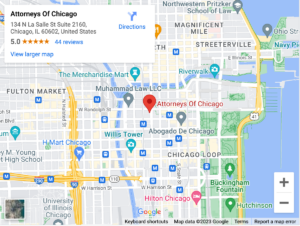
Negotiation is a process of offer and counteroffer where two or more parties attempt to reach an agreement on a disputed issue. In personal injury law, there are usually two disputed issues: (i) whether the defendant is liable for the injury claim, and (ii), if so, how much money the claim is worth. Negotiation is a skill that can greatly influence the monetary value of a personal injury claim.
Step 1: The Preliminary Investigation

The first step in resolving a personal injury claim is to gather facts through investigation. The first stage of an investigation might occur when you engage in an initial consultation with a personal injury lawyer. The lawyer will ask you questions and, if you hire them, engage in an initial investigation. They might retrieve a police report, for example, or they might interview witnesses.
The Demand Letter
The negotiation process typically kicks off after your attorney sends the defendant or their insurance company a demand letter. A demand letter is a written statement of the details of your personal injury claim against the defendant. The letter should explain and justify your claim, and it should demand compensation. An insurance company will respond with a reservation of rights letter, which is a legal formality. This is the point where negotiations are likely to begin.
Initial Negotiations
The typical response from a defendant or, more likely, their insurance company, is to either deny the claim altogether or to issue an inadequate “lowball” offer. You should turn down any lowball offer, and you should attempt to change the defendant’s mind if they reject your settlement demand entirely.
Filing a Lawsuit
Filing a lawsuit increases the pressure on a defendant who denies a claim or refuses to offer an adequate settlement. Just because you filed a lawsuit doesn’t mean a trial is inevitable. The defendant can settle any time before or during trial, and you can respond by withdrawing your lawsuit.
Pretrial Discovery
Pretrial discovery is a court-supervised method of obtaining evidence in the other side’s possession. It includes four powerful evidence-gathering techniques:
- Depositions: Out-of-court, under-oath cross-examination of opposing witnesses.
- Interrogatories Written questions that the other side must answer under oath.
- Demands to inspect physical evidence, such as a document or a damaged automobile.
- Requests for admissions: Asking the other side to admit or deny certain statements.
The pretrial discovery process is so powerful that victims often file lawsuits to gain access to it. Remember, however, that the other side can also gather evidence from you.
Back to the Settlement Table
If you gather enough favorable evidence through pretrial discovery, you might tilt the bargaining table so far in your favor that the defendant has no choice but to settle. In just about any case, pretrial discovery should alter the parties’ relative bargaining power enough to affect the progress of settlement negotiations. In such cases, it makes sense to return to the bargaining table.
Mediation
In mediation, a trained mediator intervenes in negotiations between two parties and tries to facilitate a settlement. Meditation cannot force the parties to settle, but courts often push parties to settle so as to reduce their crowded dockets.
The Settlement and Release Agreement
Once the parties agree to a settlement, someone has to draw up a written settlement and release agreement. If you can, try to see to it that your lawyer drafts the agreement. If this is not possible, at least make sure your lawyer carefully reviews it before you sign it. Don’t rely on your own review unless you have a strong background in personal injury law.
The settlement typically obligates the defendant to pay you a certain agreed-upon amount of money. In the release, you agree never to seek any further compensation arising from your injury. You must also agree to withdraw any pending lawsuit against the defendant.
Payment
Once both parties sign the settlement agreement, it becomes a binding legal contract. If the defendant refuses to pay despite signing the settlement agreement, you don’t have a personal injury claim against them. Instead, you have a contract claim against them. You can enforce this claim in court the same way you would enforce any other contract. This course of action is unusual, however, because defendants almost always pay their settlements.
Deductions
The actual settlement funds will go to your lawyer. Your lawyer will deduct their legal fees and any case expenses that they paid out of their own pocket. They will also deduct any other appropriate amounts. If your healthcare provider took a medical lien to guarantee your payment of medical expenses, for example, your lawyer will satisfy the lien before sending you any money. The rest of the settlement belongs to you.
Let Your Chicago Personal Injury Lawyer Handle Negotiations for You
If the stakes are high, give serious consideration to hiring a Chicago personal injury lawyer. In most cases, the increase in the value of a claim due to the involvement of a personal injury lawyer more than makes up for their legal fees. Contact Attorneys of Chicago Personal Injury Lawyers to schedule a free case evaluation at (312) 929-2884 with one of our experienced Chicago personal injury attorneys.

